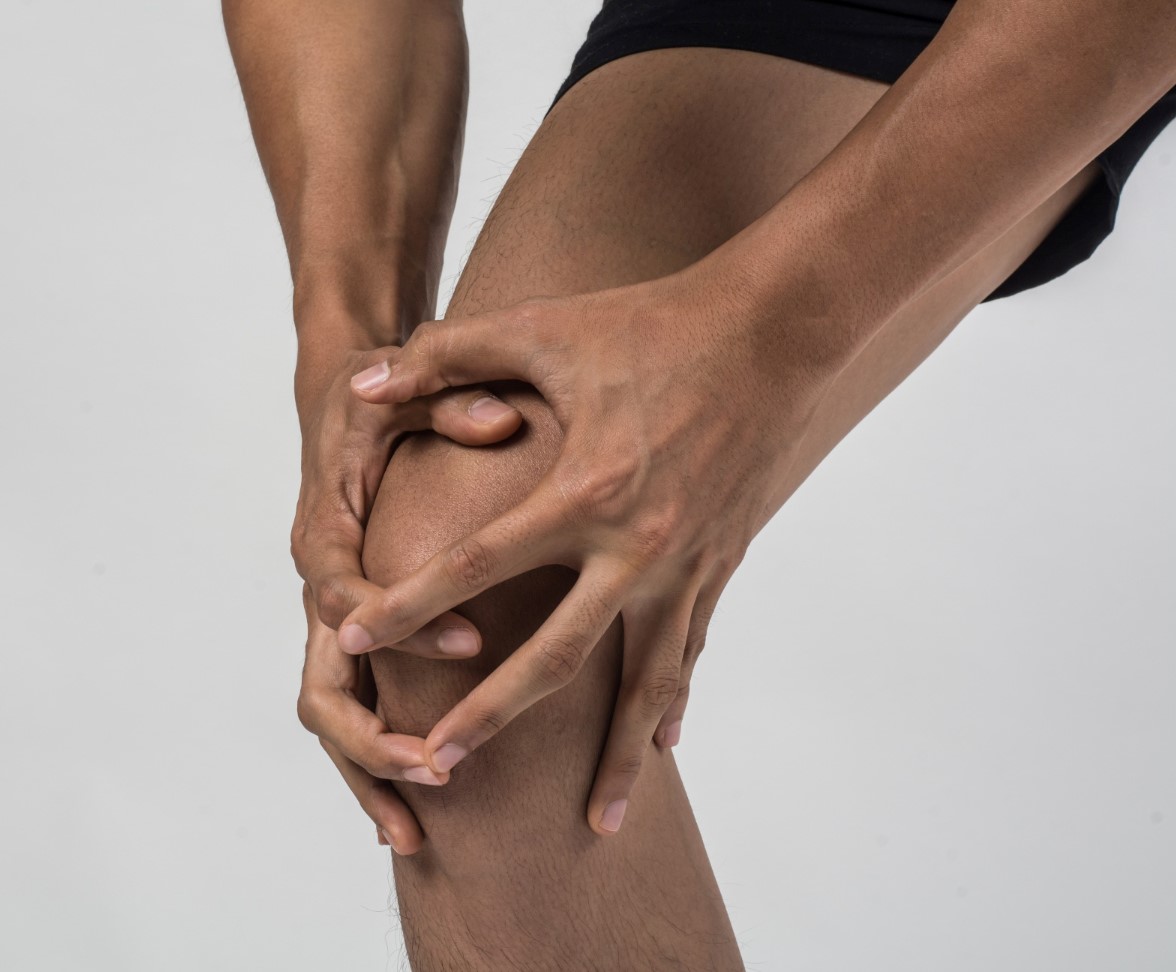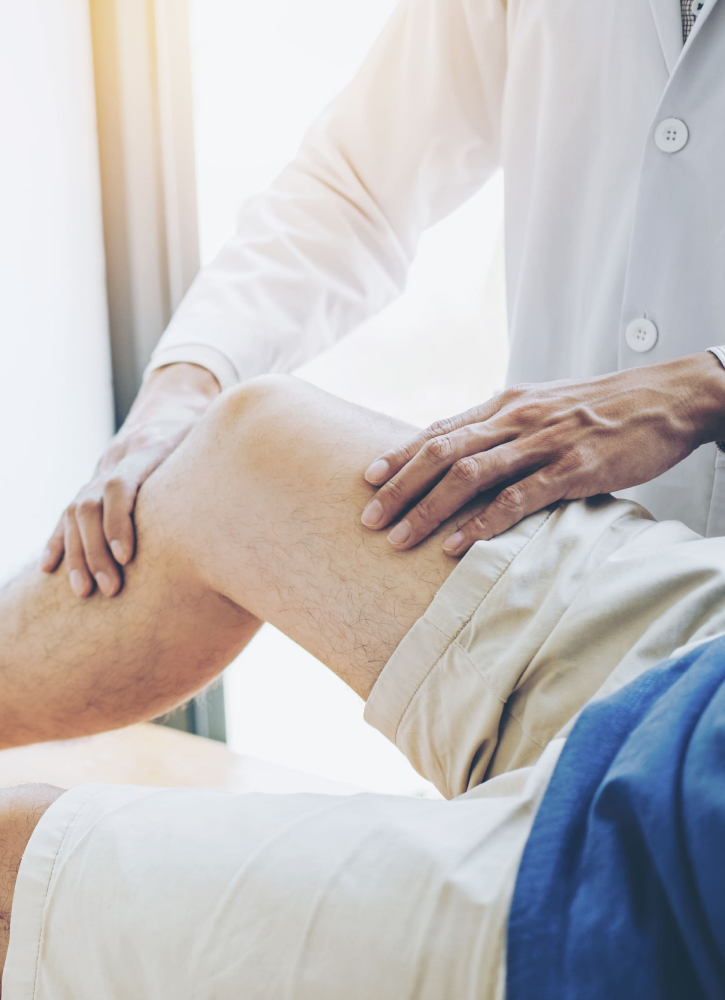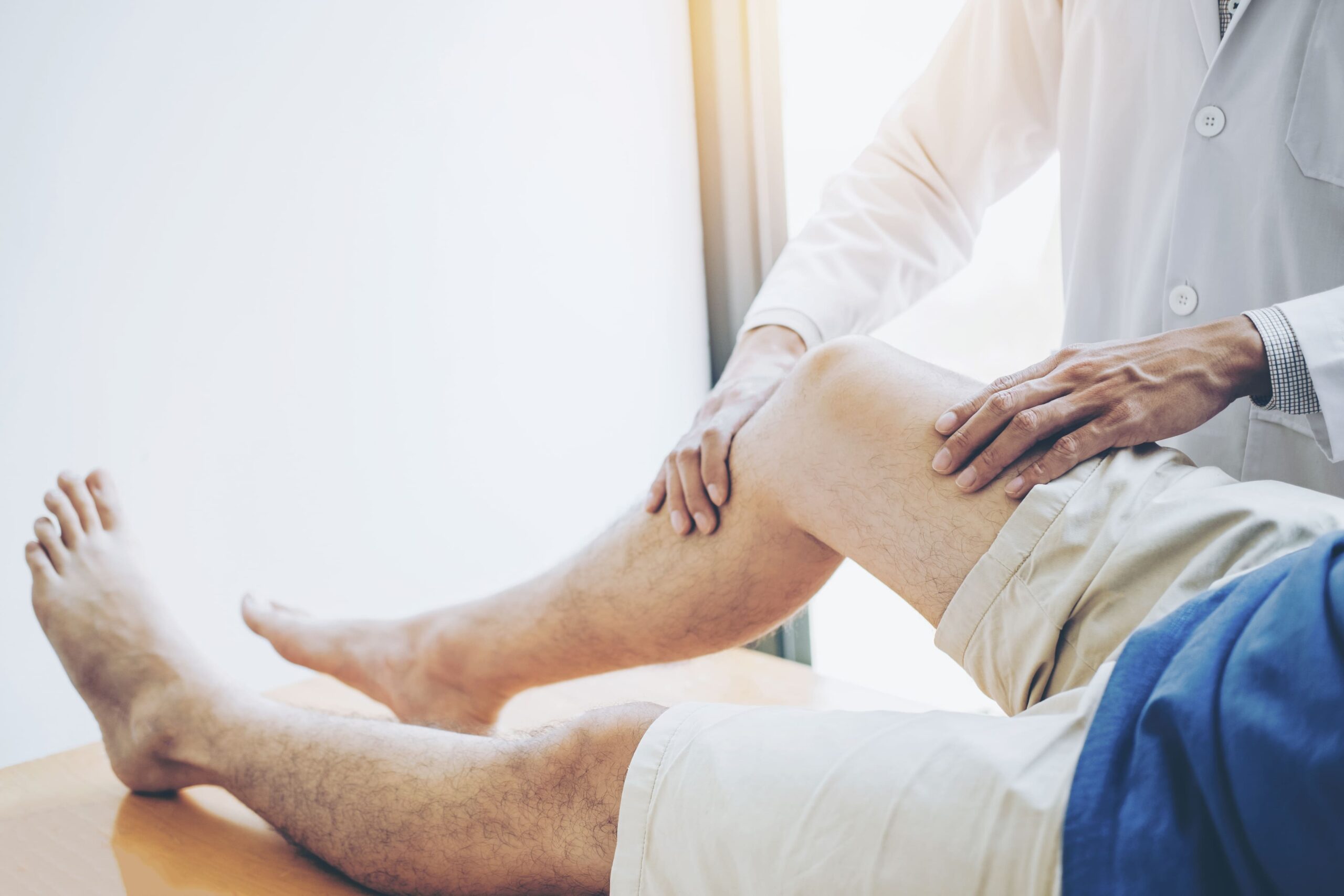Knee Cartilage Injury Specialist In Singapore

Dr Wang Lushun
Senior Consultant Orthopaedic Surgeon
MBBS (Singapore)
MRCS (Edin)
MMed (Ortho)
FRCS (Ortho) (Edin)
- Enjoy pain-free movement through cartilage repair treatment
- Fellowship-trained orthopaedic surgeon
- Internationally recognised, more than 5000 surgeries performed



What is A Cartilage Injury?
A cartilage injury refers to damage or wear and tear to the tough, flexible tissue that cushions joints. Athletes, active individuals, and those with degenerative conditions like osteoarthritis are more prone to experience cartilage injuries. If untreated, it could lead to the following:
- Increased pain and discomfort during daily activities
- Development of osteoarthritis or worsening of existing symptoms
- Further deterioration of cartilage and joint health
- Reduced overall joint function and mobility
Symptoms Of A Cartilage Injury
If you've got a cartilage injury, it's important to recognise the signs early on to receive proper treatment. Symptoms might be subtle at first, but become more obvious over time. If you notice the following, seek medical attention immediately:
Swelling
Joint pain
Stiffness
Popping or grinding sensations
If you think you have a cartilage injury,
get diagnosed early.
get diagnosed early.
Restore mobility and take control of your joint health while reducing the chances of further damage and long-term complications.


Am I A Candidate for Cartilage Repair Surgery?
If you’re experiencing joint pain, stiffness, or other symptoms of a cartilage injury, cartilage repair surgery may be an option. To determine if surgery is the optimal option, your orthopaedic surgeon will assess your case and consider several factors, such as:
- Severity of the injury: Mild to moderate cartilage damage might be treated with non-surgical methods, while more severe injuries often require surgery to restore joint function.
- Age: Younger and healthier patients tend to have better outcomes, as their bodies are more capable of healing and adapting to surgical intervention.
- Location and size of the injury: Injuries in certain areas of the joint or larger defects might require surgery, while smaller, more accessible injuries could be managed through non-surgical means.
- Previous treatments and response: If conservative treatments show no success, your orthopaedic specialist might consider surgery as the next step in your treatment plan.
What is cartilage repair surgery?
Cartilage repair surgery is a procedure that aims to restore damaged cartilage, reduce pain, and improve joint function. There are various techniques available, such as microfracture, bone marrow stem cell therapy with scaffolds, autologous chondrocyte implantation (ACI), and osteochondral grafting, each with its own advantages and limitations.
How are cartilage injuries diagnosed?
Diagnosing a cartilage injury typically involves a physical examination, a discussion of your symptoms and medical history, and imaging tests like X-rays, MRI, or CT scans. These tests help your doctor assess the extent of the damage and recommend the most appropriate treatment.
When Is The Best Time To Have Cartilage Repair Surgery?
Your orthopaedic specialist will evaluate your case and suggest if surgery is the best choice for you based on your circumstances. The decision usually depends on multiple aspects, such as the extent of the damage, your general health, and how your body reacts to non-surgical treatments. Ideally, you should consider surgery after trying conservative options without success.
Cartilage Repair Surgery Recovery Process
| Recovery Period | What to Expect: |
|---|---|
| Immediately after surgery |
|
| First few weeks after surgery (Week 0-2): |
|
| Several weeks after surgery (Week 2-6): |
|
| First few months after surgery (Week 6-12): |
|
| Several months after surgery (12 weeks onwards) |
|


Dr Wang Lushun
Senior Consultant Orthopaedic Surgeon
MBBS (Singapore)
MRCS (Edin)
MMed (Ortho)
FRCS (Ortho) (Edin)
Internationally Recognised & Double Fellowship-Trained Surgeon With Over 18 Years of Experience
- Bachelor of Medicine & Bachelor of Surgery (MBBS),
National University of Singapore - Member of The Royal College of Surgeons (MRCS),
Edinburgh, United Kingdom - Master of Medicine in Orthopaedic Surgery (MMed),
National University of Singapore - Fellow of The Royal College of Surgeons in Orthopaedics and Traumatology (FRCS), Edinburgh, United Kingdom
As a Senior Consultant Orthopaedic Surgeon and former Head of the Hip and Knee Division in Ng Teng Fong Hospital, he has won awards for superior patient outcomes (value driven), service quality and enhanced recovery programmes. His patients include current and former national athletes and sporting professionals.
Why Choose
Dr Wang Lushun?
Trusted
Leadership on Orthopaedic Advisory Boards
Skilful
Double Fellowships at Centres of Excellence
Experienced
Senior Consultant with Over 18 Years of Experience
Can I Use Medisave For Cartilage Repair Surgery?
Yes, you can use Medisave to offset the cost of your procedure.
Reach out to us today to learn more about payment options.
Patient-Centred Orthopaedic Care
We are dedicated to your recovery and well-being. Every patient deserves the freedom that comes with active living. Whether you're an athlete sidelined by an injury or a weekend hobbyist desperate to return to your passion, our mission is to help you regain your mobility and independence.
Personalised Approach For Positive Outcomes
Our clinic prioritizes time dedicated to understanding each patient’s injuries and needs. Dr Wang strongly believes that personalised care & patient management will lead to better outcomes & positive experiences.
Minimally Invasive Techniques For Faster Recovery
Dr Wang’s extensive experience with minimally invasive procedures allows for less scarring, lower risk of complications and faster recovery compared to traditional surgical methods.
Aftercare Focused On Restoring Mobility & Well-Being
As an avid sportsperson, Dr Wang understands the time and patience required to regain mobility and return to active living. After your procedure is completed, Dr Wang will make sure your recovery is smooth and comfortable.
Insurance
We accept all patients, with or without insurance plans. Additionally, we are on the specialist panels of these Health Networks/Insurance Plans. Please contact us if you have any queries and we will be happy to assist you in checking with your insurance provider.
Our Clinic Locations
3 Mount Elizabeth, #13-14
Mount Elizabeth Medical Centre
Singapore 228510
820 Thomson Road, Mount Alvernia Hospital, #05-51, Medical Centre D, Singapore 574623
Frequently Asked Questions
What causes cartilage injuries?
Cartilage injuries can be caused by various factors, including acute trauma, repetitive stress on the joint, or degenerative conditions like osteoarthritis. Accidents, sports injuries, or daily wear and tear can damage the cartilage, leading to pain, swelling, and reduced mobility.
Can cartilage injuries heal on their own?
Cartilage has limited blood supply and poor regenerative abilities, so it doesn’t heal on its own as easily as other tissues. However, some minor injuries may improve with conservative treatments like rest, ice, compression, and elevation (RICE), along with physical therapy and pain management.
What are the risks and complications associated with cartilage repair surgery?
Although risks and potential complications rarely happen, these include things like infection, bleeding, blood clots, nerve damage, or anaesthesia-related issues. Specific to cartilage repair surgery, there may be risks of graft failure, incomplete healing, or continued joint pain and stiffness. Your orthopaedic surgeon will discuss these risks with you before proceeding with surgery.
Can cartilage repair surgery prevent arthritis?
Cartilage repair surgery can help restore damaged cartilage and improve joint function, potentially delaying the progression of arthritis.
Can I return to sports after cartilage repair surgery?
It’s possible, but it depends on factors like the type of procedure, the location and extent of the injury, and your commitment to rehabilitation. Your surgeon and physical therapist will guide you through the recovery process and help determine when it’s safe to resume sports activities.